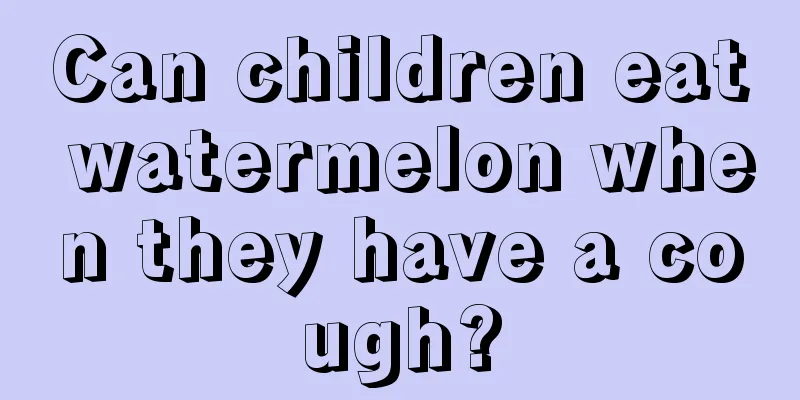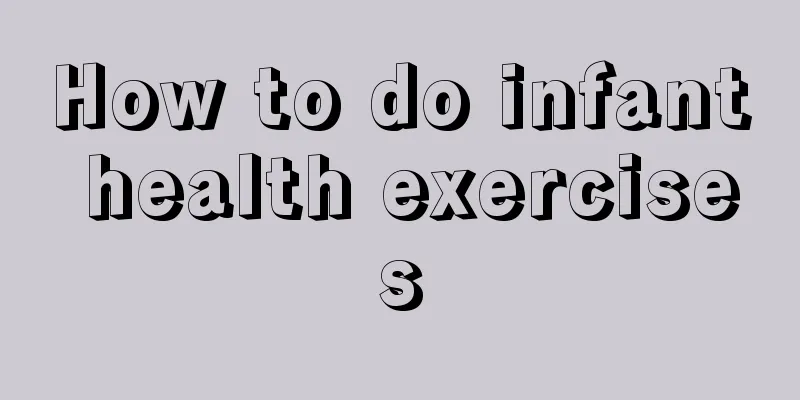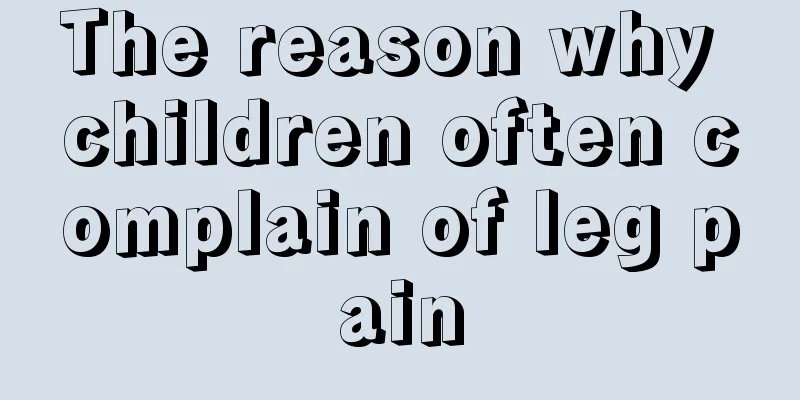How to treat bronchial pneumonia in 3-year-olds

|
Bronchopneumonia, also known as lobular pneumonia, is a common disease in children, especially in infants and young children, and is also the main cause of death in infancy. Pneumonia often occurs in the cold seasons of winter and spring and when the climate changes suddenly, but summer is no exception. Living in crowded, poorly ventilated, polluted air, and with a large number of pathogenic microorganisms indoors makes pneumonia more likely to occur. So how to treat bronchial pneumonia in a 3-year-old? Let us take a closer look at the following article. 1. General treatment: (1) Nursing: The environment should be quiet and clean. Provide patient care for the sick child to keep him in a good spirit. Make sure the child gets enough rest and avoid excessive treatment measures. The room should be ventilated frequently to make the air fresher, and a certain humidity (around 20°C) and relative humidity (60% is appropriate) must be maintained. Restlessness can often aggravate hypoxia, and sedatives such as chlorpromazine, phenobarbital or chloral hydrate can be given. However, do not use too many sedatives to avoid suppressing coughing, which would make it difficult to expel phlegm. Avoid using respiratory stimulants as they may increase the child's irritability. (2) Diet: Adequate intake should be maintained, and liquid food such as human milk, cow's milk, rice soup, vegetable juice, fruit juice, etc. should be given. Vitamin C, A, D, and vitamin B complex can also be supplemented. Calcium should be supplemented at the same time. For patients with a long course of illness, attention should be paid to strengthening nutrition to prevent malnutrition. 2. Antibiotic therapy: For bacterial pneumonia, the pathogen should be identified as much as possible, and at least body fluid samples should be taken for corresponding bacterial culture before sensitive antibiotics can be selected for treatment. Generally, penicillin is used first for treatment, 4 times a day, 200,000 to 400,000 units (5u(kg?d)) each time by intramuscular injection, until the body temperature returns to normal 5 to 7 days later. For critically ill children, the dose can be increased 2 to 3 times, or intravenous drip can be used instead. If it is ineffective, other antibiotics can be used instead. Usually, appropriate antibiotics are selected based on the clinical pathogen diagnosis or positive bacteria found in throat swab culture. If there is sepsis at the same time, blood should be drawn for culture and drug sensitivity test in time to facilitate the selection of drugs. For cases of unknown cause, two antibiotics can be used in combination first. At present, antibiotics, especially cephalosporins, are developing rapidly and should be selected rationally according to the condition of the disease, bacterial sensitivity, and the patient's economic situation. 3. Antiviral therapy: Antibiotic therapy in a broad sense includes antiviral therapy. If viral pneumonia is clinically considered, ribavirin can be tried, with a concentration of 20 mg/ml, 20-30 ml, nebulized and inhaled 3 times a day. How to treat bronchopneumonia in a 3-year-old? Through the detailed introduction of the above article, I believe you have gained a certain understanding. Strengthen care and physical exercise: Pay attention to nutrition during infancy, add complementary foods in time, cultivate good eating and hygiene habits, get more sun exposure, and preventing rickets and malnutrition is the key to preventing severe pneumonia. Exercise from an early age. |
<<: Is it normal for a 10 month old baby to have teeth?
>>: What to do if your 1-year-old child has diarrhea
Recommend
What should I do if my arm is swollen after getting a vaccination?
After the baby is born, timely vaccination is nec...
What to do if your baby has hernia
What to do if a newborn has hernia? This is a que...
How to make pea baby food?
As we all know, babies can be fed with breast mil...
Why does the baby's soles sweat?
Although the baby's body temperature is gener...
How to improve the slow hair growth of a two-month-old baby?
I don’t know what the reason is, but the hair of ...
What is the reason for the blue veins on the child's temples?
Blue veins are the veins under our skin. Some peo...
How can infants and young children eat walnut oil more healthily
Infants and young children need to add a small am...
Little girl has white worms in her vagina
Many family members have reported that they have ...
Can children take a bath when they have measles?
Many people think that after getting urticaria, t...
What is the best treatment for laryngitis in children?
Every parent hopes to see their children's he...
Neutropenia in children
Children are particularly prone to childhood neut...
Specific symptoms of zinc deficiency in children
The physical health of children is an issue that ...
Why is the baby easily startled when sleeping?
Many mothers report that their babies are too tim...
Why does my 6 month old baby keep shaking his head?
Six-month-old babies have gradually begun to adap...
How to supplement iron deficiency in a two-year-old baby?
In life, if a 2-year-old baby appears pale and li...









